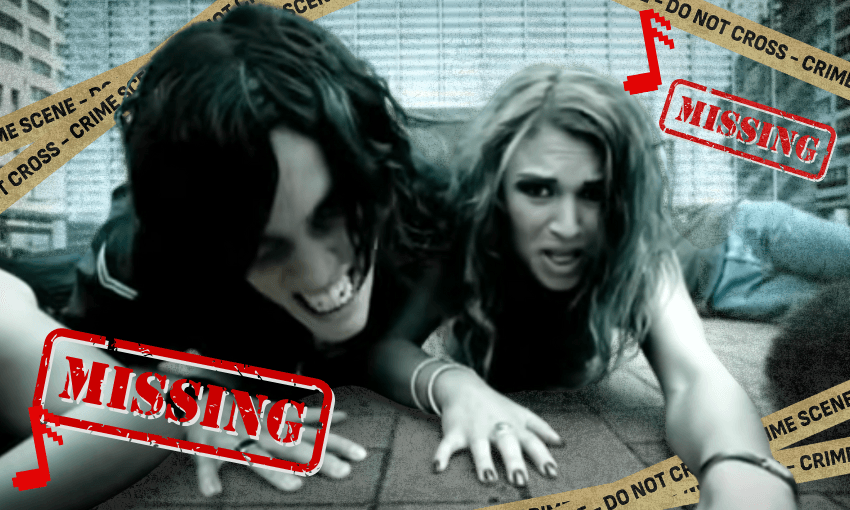One of the standouts from this year’s film festival is coming to cinemas. It’s a must-see, writes Chris Schulz, but beware – it’ll tear your heart in three.
This is an excerpt from The Spinoff’s weekly pop culture newsletter Rec Room. Sign up here.
A month has passed since I saw Past Lives. That means it’s been a full four weeks since my life was changed – possibly for good? This film has sat with me, churning away in my stomach, pulling at my heart, rearranging my soul. Moments keep coming back to me, hitting my brain like a shockwave. Past Lives is not an easy watch. It is brutal: it will tease you, taunt you, make you question your own past and the things you’ve chosen to bring with you into the present.
I’m not sure if I’m making any sense, but if you take one thing away it’s this: if you choose to see Past Lives, Celine Song’s debut feature that had its New Zealand debut at the International Film Festival last month and gets a limited run in Aotearoa theatres this weekend, it’s going to stay with you. That much is certain. You do not have a choice in the matter.
Past Lives is a tender, intimate story about two childhood friends told across three decades. We meet them first as school kids, then as twenty-something singles, and again in their 30s. It’s not a film full of big reveals or “gotcha” moments. There is little physical contact between the two. At one point, while catching up over a Skype call using dodgy mid-2000s internet, the glitches mirror their relationship: stuttering, full of pauses, fading in and out, always threatening to disconnect completely.
That lack of touch is what makes the tension so palpable. When they’re together, Nora (played by Greta Lee) and Hae Sung (Teo Yoo) have as much chemistry as any couple has ever had on screen. It’s in the way they look at each other. Her: playful, cheeky, questioning. Him: intense, deep, like his whole life depends on what she says next. It’s in the smiles, the laughs, they way they flirt around, but never directly at, each other.
This is a film all about the thing that occurs between two people just before a relationship starts. Past Lives is all suspense, always, and thanks to Song’s firm grip on the subject matter, it makes for visceral, scintillating viewing. Song seems to have her finger on the pulse of the human condition. These people know each other intimately, and yet … should they? Could they? Would it ever work? Shouldn’t they try?
Past Lives spends its entire run time building up to an answer. When it finally gets there, it will tear your heart in three. I saw this when it debuted to a packed festival house at The Civic, and I’ve never been part of an audience that felt so on edge, like we were collectively inhaling. By the end, it doesn’t seem like a spoiler to say there was a deathly silence, followed by gasps, sobs and plenty of damp cheeks.
My heart hurts, and it’s taken me weeks to understand why. Yes, Past Lives is a bruising viewing experience. Song’s film asks deep questions about how the past can influence the present and how much history it’s healthy to bring with you. It will make you examine your own past, your choices, and whether you’ve put the correct amount of weight on those decisions. Most of all, it’s a film that asks: can you ever go back?
It’s forced me to spend the past four weeks replaying key scenes over and over in my mind: the way Nora smiles at Hae Sung in a different way to everyone else; the awkward way he stands when he’s about to see her for the first time in a decade; and the gut-wrenching bar conversation that plays out between three people, in two languages, with every single available human emotion on display.
This year’s best viewing has been found in the most unexpected places: the third episode love story in HBO’s grisly zombie apocalypse The Last of Us, the dark underbelly of grief that plays out in Aussie horror Talk To Me, or the jaded eye rolls of Dre in Prime Video’s serial killer show Swarm.
Past Lives scours similar territory, yet it finds a bottomless pit in the simplest story of all: two people who can’t decide if they’re right for each other. Be warned: you won’t emerge unscathed.



